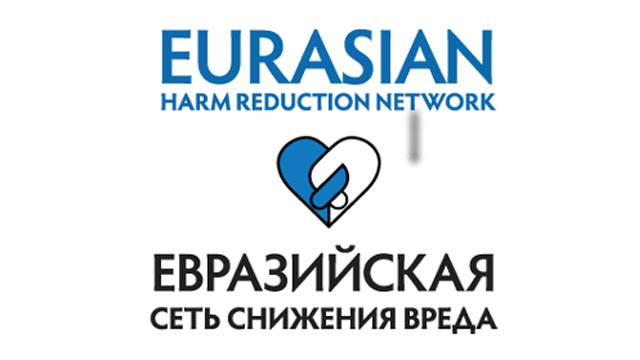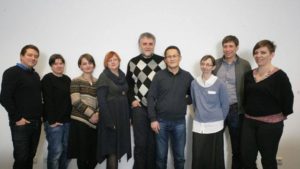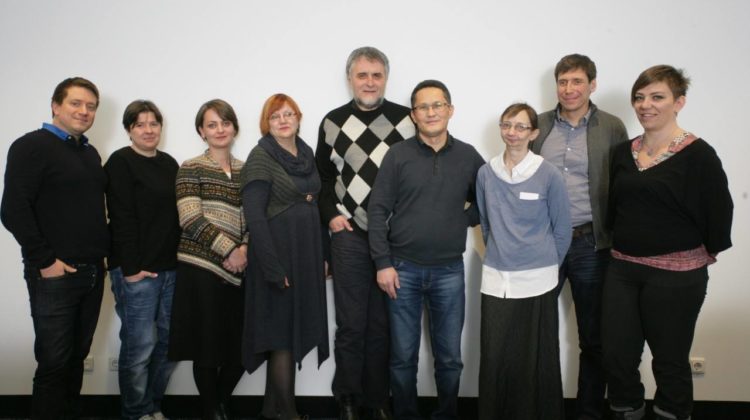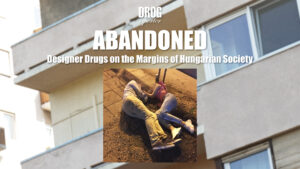After the office was raided and computers were seized, the members of the staff and the Steering Committee announced their resignation from EHRN. Is this the end of the network? No, it is only the end of EHRN as an organisation but the network is alive and well. Another NGO has been registered to provide a new organisational framework. This is the story from the former co-chair’s perspective!

I received many questions after I resigned as the co-chair of EHRN. I know it must be frustrating for many members and allies to receive news that contain limited, sometimes conflicting information and don’t let them to see the whole picture. I am not a staff member and I was not involved in the day-to-day management of the network so I don’t know all the details – but I feel it is my duty to tell you the story from my perspective.
When I was elected as the co-chair of the Eurasian Harm Reduction Network in 2014, I did not expect that the network will undergo the most serious organisational crisis during my term. It was a challenging period, with changing drug markets, new outbreaks of HIV, rising political populism, budget cuts, and retreating international donors all over the region. But the network itself was fit for purpose, and it seemed we had everything needed to face the problems: committed and capable staff members, stable financial resources, a vibrant and colourful membership. I thought the main challenge we had to focus on would be how to mobilise membership more effectively to implement our two main strategic goals, that is, to push national governments to reform repressive drug laws, and to provide resources for harm reduction programs.
To understand the roots of the present conflict, we have to go back to the end of the nineties, when the network was established. It is important to mention that the network existed well before the legal entity was registered. Harm reduction activists and professionals created an informal network to share experiences and ideas. Soon they decided that a legal organisation should be registered to be able to receive funds and manage projects and pay salaries for staff, etc. Vilnius seemed to be an ideal place as the centre of the network, between East and West, with people who speak both English and Russian. They checked the Lithuanian law and the best solution seemed to be to create a “public institution”. To do so, they needed at least one Lithuanian citizens to be the founders of the network. According to Lithuanian law, these shareholders are the actual owners and legal representatives of the organisation, who can hire and dismiss the director and oversee the work of the staff. Two persons were selected to be the founders, Emilis Subata, a doctor and pioneer of harm reduction in Lithuania, and Ingrida Sulciene, a pr specialist who was friendly to the cause of harm reduction. The shareholders were not supposed to interfere with the day to day management of the organisation – they were supposed to stand in the back and let the international membership, and the Steering Committee elected democratically by the membership, control the management.
The main problem with this system was that from a legal point of view, the membership had absolutely no power over the organisation. The Steering Committee, with its members elected for two years, did not even exist in the legal documents of the organisation. How this system could work for so many years was only because the shareholders respected the decisions of the Steering Committee and the autonomy of the director in managing the NGO. However, this consensus was broken two years ago as a result of growing tensions between the director and one of the shareholders, Ingrida. After she virtually disappeared from the life of the organisation for almost twenty years, she suddenly showed up and started to demand more control over the organisation. Her intentions are not clear – but most people think she was driven by ambition and greed. The fact that one of her demands was to be contracted as a consultant and be on payroll seem to support this suspicion. Of course Sergey and his successor, Anna Dovbakh, together with Emilis, the other shareholder, resisted her claims, pointing out that they are contradictory to the mission of this non-profit organisation. Both parties hired lawyers and soon an endless legal dispute started between the shareholders, without much chance to resolve the conflict peacefully.


The members of the resigned Steering Committee
When all this happened EHRN had already been the recipient of several large grants from various big donors, such as the Global Fund, the Open Society Foundations and the European Commission, to name a few. We faced a very delicate situation: if this conflict surfaced it would not only damage the reputation of the network but could undermine its capacity to raise funds. If there is one thing that can scare away donors it is an organisational crisis. We realised that the current organisational system, inherited from our predecessors, did not reflect the needs of the membership and did not suit our mission: it makes us vulnerable to the irrational demands of a shareholder. We urgently needed a harm reduction exit strategy. The Steering Committee had a meeting in Vilnius in December 2016. Here we made a strategic decision to end our dependence on the shareholders and re-register the network in a new form, an association, that recognises the Steering Committee – and the general assembly of members – as the major decision making body. However, we hoped that the transition could be processed gradually and smoothly so we planned to announce the new association only after the ongoing projects had run out.
Unfortunately the reality rarely follows the plan. A few weeks ago the other shareholder, Emilis Subata, had enough of the legal fights with Ingrida Sulciene and she made a deal with her, selling his share to a businessman Linas Merkelis (brought in by Ingrida Sulciene) and signing a so called “peaceful agreement” that made Linas and Ingrida the de facto and de jure sole owner of the organisation. Ingrida promised in the peaceful agreement that she would respect the decisions of the Steering Committee and would not depose the director, Anna Dovbakh. Unfortunately she did not keep to the agreement. Soon she deposed the director and hired security men to raid the office, accusing the management of financial misconduct. At the same time, she appointed her own husband as the new director of the organisation. All these decisions were made without consulting with or even informing the Steering Committee. I think it is no surprise that after these outrageous actions we had no other choice but to resign and announce that we will form a new association.
Meanwhile, almost all donors withdrew or suspended their grants, including the Global Fund. Staff members and the Steering Committee are communicating with these donors to build trust in the new association as the true representatives of harm reductionists in the region. We were very grateful that most donors expressed flexibility and understanding of the situation, although the transition is much more difficult than it was planned. The website will soon be ready to launch and invite old and new members to join. The new management realised that they are isolated and they have no support or legitimacy. Their last minute call for an election of a new Steering Committee is a desperate act designed to mislead members. I personally advise all members to disregard emails from them, resign from the organisation, and join the new association.
What is the moral of the story? Some people would say it is a story that shows how important is it to create a stable and strong governance structure for an NGO. True, it is important that the organisational form and structure of an international network should be accountable and democratic. But I think no governance structure can prevent the fallibility of the human factor. According to my experiences, human pettiness, personal greed and ambition are risk factors that threaten even the mightiest and strongest organisations. What is really important is to have an active and committed membership, and a community that stands up for its rights and does not let itself be intimidated or poisoned by the ambition and greed of a few. In the end, it is not so different from the macro socio-political level changes: no legal rules or decision making mechanisms can defend democracy without committed and active citizens. I think the current crisis does not only show the weaknesses of the network, but it also shows the strength of our harm reduction community.
Peter Sarosi
Former Co-Chair of EHRN






